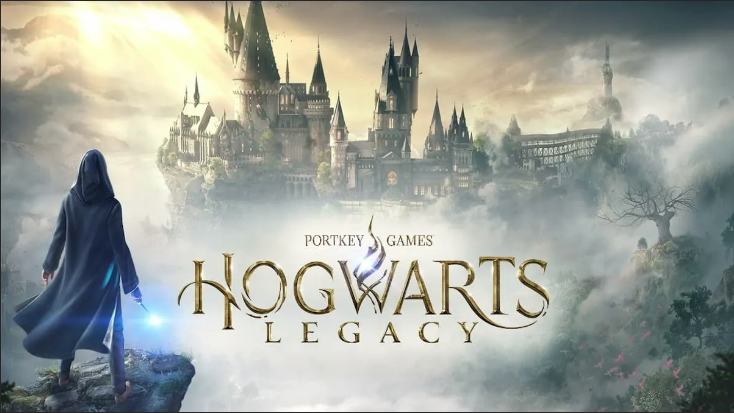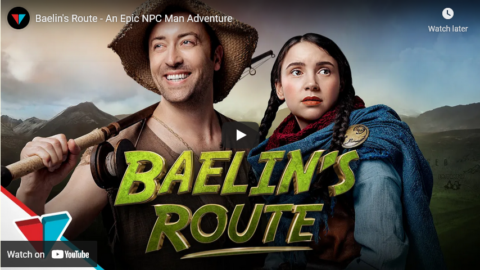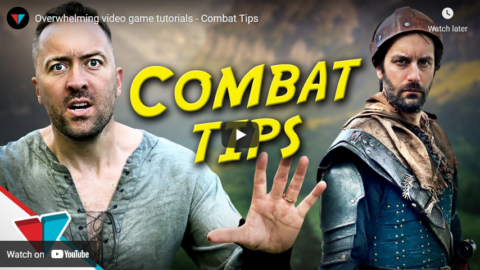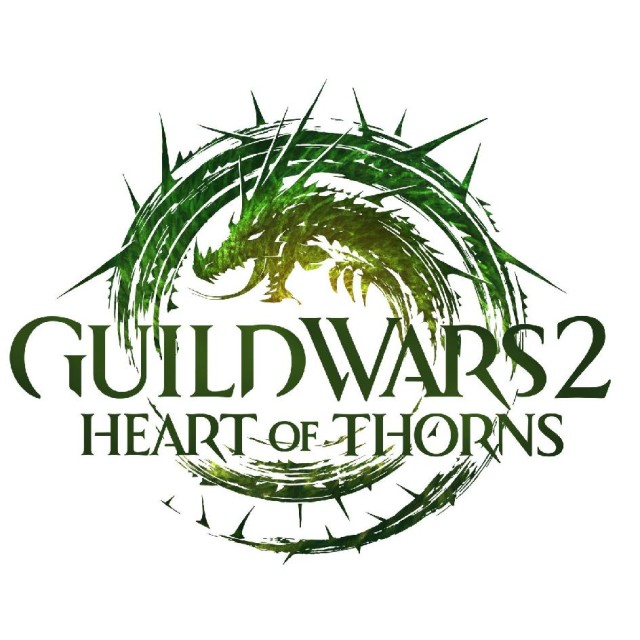I once saw an interview with basketball player Charles Barkley, in which he discussed his retirement. Barkley was a Hall of Fame player, and like most of those guys, he hung on a few seasons too long. Even having lost a step or three, Sir Charles was still a decent player, but that’s all he was — a decent player, but getting paid like a superstar and with a superstar’s reputation. A few seasons after retiring, he admitted as much. He said something like (from memory) “I’d guard a guy and think, ‘this is going to be easy, this guy is terrible’. And then he’d beat me, and I’d realize I just got beat by some guy who’s terrible, and then I knew it was time to hang it up.”
One thing chicks of both sexes and all however-many-we’re-up-to genders don’t realize these days is how competitive men — actual biological males — are hardwired to be. Things like World of Warcraft and fantasy football only exist because the genius who invented those figured out a way to tap into that heretofore-unexpressed male competitiveness. And indeed, it’s the guy who’d never even dream of putting on shoulder pads who’s the most insanely competitive guy in a fantasy football league or (I’m certain) a whatever-they’re-called in World of Warcraft. Even the uber-dorks in the Math Club and the Speech and Debate Society went after each other like Mickey Ward and Arturo Gatti. It’s just how guys are … or, at least, how guys used to be.
[…]
When it comes right down to it, that’s why men of a certain age simply don’t get “women’s sports”. Few will be as crustily chauvinistic as yer ‘umble narrator, and come right out and say it, but here goes: Women’s “sports” are just a shoddy knockoff of the real thing, because women just aren’t wired that way. That’s not to say that there aren’t competitive women, or athletic women — obviously there are, some very athletic and very competitive — but the female of the species just isn’t wired to put in the work the way males are. When faced with the prospect of three straight hours in the batting cage, swinging at curve after curve until your blisters have blisters and your shoulders feel like they’re falling out of their sockets, most women will quite sensibly ask “why bother?” Competition-for-competition’s-sake, even when it’s only against yourself in those long, long, looooong hours in the cage, just doesn’t motivate them the way it does us.
Which is why a person’s reaction to Simone Biles, or the USA Women’s soccer team, or the WNBA, or what have you is an almost perfect predictor of their age, not just their “gender”. I judge sports as sports. I don’t care about soccer, but if I did, I’d care about it as soccer — meaning, I’d want to see the best possible players, playing at the highest possible level. Women’s Olympic teams — that is to say, all star teams, the very best players — routinely get smoked by teams of 15 year old boys. Sir Charles is pushing sixty, but he could dominate the WNBA right now, in street clothes. Obviously this doesn’t apply to Pee Wee or rec leagues, but if you’re going to take a paycheck for doing it, then I want to see exactly what I paid for.
In estrogen-drenched, synchronized-ovulation Clown World, it’s all about appearances. Sure, she let her team down and wussed out (while still talking up how great she is), but can’t you see that it gave her the sadz? Sure, Megan Rapinoe et al keep getting smoked by 14 year old boys, then choking in international competition, but can’t you see her out there, with her pink hair and her tats and her Strong, Confident Empowerment? The “competition”, such as it is, is an excuse for the display. Michael Jordan ought to give baseball another shot. We know he can cry. These days, that’d get him a first-class ticket to Cooperstown.
Severian, “On Competition”, Rotten Chestnuts, 2021-08-02.
October 8, 2024
QotD: The competitive instinct
April 12, 2024
QotD: Prepper fantasy versus prepper reality
… note that this is also a bit of a rebuke to the dominant strain of prepper fantasies, such as those I began this review with. Prepper fantasies are most fundamentally fantasies of agency, dreams that in the right crisis the actions you take could actually matter, and that in the wake of that crisis you could return to a Rousseauian condition of autonomous activity freed from the internal conflicts engendered by societal oppression (whether that oppression takes the form of stifling social convention or HRified bureaucratic fiat). It’s obvious how the prepper fantasies relate to the great survival stories like Robinson Crusoe, or to the pioneer dramas of the American Westward expansion. It’s a little less obvious, but just as deeply true, that they’re connected to stories of rogues, rascals, and reavers like those by Robert E. Howard or Bronze Age Pervert. All of these stories, fundamentally, are about how a man freed from external restraint and internal conflict can apply himself to better his condition.
The thing is these stories are totally ahistorical — the best that solitary survivors have ever managed was to survive, none of them have rebuilt civilization. As Jane notes in her review of BAP, the sandal-clad barbarians have generally been subjected to a “tyranny of the cousins” even more intrusive and meticulous than the gynocratic safetyism that Bronze Age Lifestyle offers an imaginative escape from. And as for the pioneers, Tanner Greer notes that:
Many imagine the great American man of the past as a prototypical rugged individual, neither tamed nor tameable, bestriding the wilderness and dealing out justice in lonesome silence. But this is a false myth. It bears little resemblance to the actual behavior of the American pioneer, nor to the kinds of behaviors and norms that an agentic culture would need to cultivate today. Instead, the primary ideal enshrined and ritualized as the mark of manhood was “publick usefuleness”, similar, if not quite identical, to the classical concept of virtus. American civilization was built not by rugged individuals but by rugged communities. Manhood was understood as the leadership of and service to these communities.
It would be too easy to end the review here, with the implication that the prepper identity is a fantasy of radical individualism and like all such fantasies, kinda dumb. But the thing is, the prepper world has by and large absorbed this critique and incorporated it into its theorizing. In contrast to the libertarian fantasies of the 1970s, second-wave prepperism (reformed prepperism?) is constantly talking about community, the importance of having friends you can trust, of cultivating deep social bonds with your neighbors, etc.
What Yu Gun reminds us is that this is still totally ahistorical, but this time in a way that indicts not only the preppers, but also a much broader swathe of our society. A man without a community is unnatural, but so is a community without leadership, hierarchy, and order. The prepper version of community is a vision of freely contracting individuals respecting each others’ autonomy while cooperating because it’s in their best interests. This is also the folk version of community that motivates much of our economic and legal regime. Scratch an American “communitarian”, and underneath it’s just another individualist.
If you hang out on prepper forums, a recurrent mantra is to “practice your preps”, that is to start living on the margin as if the apocalypse had already occurred. The purpose of this is to gain experience in the skills you’ll need after the end, and to work out the kinks in your routine now, while it’s still easy to make adjustments. Originally this meant practicing getting lost in the woods, using and maintaining your weapon of choice, eating some of your food stockpile, or whatever. In second-wave prepperism it means all that, plus a bunch of new stuff like hanging out with your neighbors, attending community barbecues, and whatever else it is that freely contracting individuals like to autonomously do while temporarily occupying the same space.
But for we third-wave preppers, it has to take on a very different meaning. Greer’s essay that I quoted above is mainly about how leadership and service in local-scale organizations served as training for leadership and service in much larger groups aimed at problems with much higher stakes. In other words, they were practicing their preps. One of the great secrets of leadership is that following and leading are actually closely related skills, and that practice at one of them transfers well to the other. This is difficult for we Americans to see, because an aversion to hierarchy is built into our national character, and consequently we operate with impoverished models of what it means to be in a position of authority or of subordination.
Long ago I read an article contrasting Western and Korean massively-multiplayer online role-playing games (MMORPGs). Even if you know nothing about computer games, you probably know that in most of them you are the hero, the chosen one, the child of destiny. Talk about fantasies of agency! MMORPGs thus have a tricky needle to thread — somehow all the thousands and thousands of players need to simultaneously be the chosen one, the child of destiny, etc., etc. And they mostly accomplish this by just rolling with it and asking everybody to suspend disbelief. But this article claimed that Korean MMORPGs are different — when players join these games, they’re randomly assigned a role. A tiny fraction might become kings or generals or children of destiny, with the power to decide the fates of peoples and kingdoms, but most are given a role as ordinary soldiers or porters or blacksmiths, and toil away at their in-game mundane tasks, without much ability to affect anything at all.
We like to imagine that after the bombs fall and the smoke clears we will emerge as the new Yu Gun, apportioning merit and assigning tasks. And perhaps you will indeed be called upon to do that, so you should prepare yourself to step up and do it. That preparation will involve some practice commanding others and some practice obeying others’ commands, because the two are inextricably bound together. But in life as in Korean video games, there’s isn’t very much room at the top. Far more likely, when the stage of history is set, we will be cast in a supporting role, like the Korean gamer assigned to role-play as a peasant or like Yu’s followers standing in orderly ranks. Let us not turn our noses up at this vocation, the poorly-behaved seldom make history.
John Psmith, “REVIEW: Medieval Chinese Warfare, 300-900 by David A. Graff”, Mr. and Mrs. Psmith’s Bookshelf, 2023-06-05.
February 16, 2023
April 10, 2022
August 29, 2021
QotD: “LEEEERRRROOOYYYY JEEEEENNNNKIIIIINS!”
Would it be confessing too much to admit that one of my generation’s formative moments happened in the massively multiplayer online role-playing game World of Warcraft?
The year was 2005, and a diverse collection of mages and warriors were about to storm a mythical castle swarming with flying dragon-like creatures, particularly deadly to their guild. Like true and proper nerds, they met beforehand to discuss their strategy, and with all the detached analysis of a corporate board discussing the latest results of a focus group convened to discuss a brand refresh.
“Christ. OK. Well what we’ll do I’ll run in first, gather up all the eggs,” the leader begins. “I will use Intimidating Shout to kind of scatter them so they don’t have to fight a whole bunch of them at once. When my shout is done, I’ll need Anthony to come in and drop his shout too so we can keep them scattered.
“We’re going to need Divine Intervention on our mages … it is a pretty good plan. We should be able to pull it off this time. What do you think, Abdul? Can you do a number crunch real quick?”
The resident numbers guy responds: “Uh, yeah, give me a second. I’m coming up 32.33 — repeating, of course — percentage of survival.”
“Ah, that’s a lot better than what we usually do …”
Then one of the guild’s resident numbnuts breaks into this dull planning.
“Thumbs up. Let’s do this.
“LEEEERRRROOOYYYY JEEEEENNNNKIIIIINS.”
“Oh my God, he just ran in.”
His team dutifully follows … and proceeds to get slaughtered by the dragon things.
“Goddamnit, Leeroy. You moron.”
Whether or not the scene was staged is irrelevant. The guild, “Pals for Life”, may have died in that fight, but glory lives forever. Or, at least, meme glory does. It was a perfect encapsulation of what happens when the best-laid plans come to nothing, when life goes pear shaped, when the odds are bad so, fuck it, you storm the castle anyways.
Jen Gerson, “Alberta goes Leeroy Jenkins on Summer”, The Line, 2021-05-28.
May 15, 2021
Baelin’s Route review, a discussion on why Viva La Dirt League’s Baelin’s Route is such a great story
Writers Block
Published 10 May 2021In this video we will discuss why Viva La Dirt League’s movie Baelin’s Route is such a masterpiece of story telling.
Viva La Dirt League — Baelin’s Route https://www.youtube.com/watch?v=PEe-Z…
May 10, 2021
Baelin’s Route – An Epic NPC Man Adventure
Viva La Dirt League
Published 9 May 2021Baelin (Rowan Bettjeman), a simple background NPC in the video game Skycraft has been walking the same route for as long as he can remember. However, his peaceful (and mindless) routine is violently shaken as a short-tempered Adventurer (Ben Van Lier) drags him off his path and into a dangerous quest to escort a mysterious NPC girl named Willow (Phoenix Cross) across the harsh world of Azerim.
ORIGINAL ‘BAELIN’S ROUTE’ SOUNDTRACK: https://mikenewport.hearnow.com/
SUPPORT ON PATREON – http://bit.ly/VLDLpatreon
DISCORD – http://bit.ly/VLDLdiscord
TWITTER: http://bit.ly/VLDLtwitter
INSTAGRAM: http://bit.ly/VLDLinstagram———————————- TWITCH ——————————-
———————————– MERCH——————————–
Merchandise: bit.ly/VLDLmerch
Songs: http://bit.ly/VLDLmusic
From the comments:
Young Dad Gaming
36 minutes ago
Okay, I know people keep talking about how good the choreography is … and we need to discuss that a little further. That was almost a full minute of a single take of a fight scene from guys who make comedy videos. That in itself is impressive and should be lauded as one of the best action scenes on YouTube.
February 27, 2021
Overwhelming video game tutorials – Combat Tips
Viva La Dirt League
Published 25 Nov 2020When a game tries to give you all the tutorials at once
Get a 12% discount off all SteelSeries products by using our code
VLDL12. Not only do you get a special discount but we make 8% on all sales! So get a great deal and help support us!
Link: https://bit.ly/31ltYT2
Code:VLDL12WATCH MORE SKITS HERE: https://bit.ly/34oAolt
SUPPORT ON PATREON – https://bit.ly/36Hg7ZY
DISCORD – http://discord.gg/VLDL
TWITTER: https://bit.ly/36R84dt
INSTAGRAM: https://bit.ly/2EoniKD
August 17, 2019
How Diablo was completely Reverse Engineered without Source Code | MVG
Modern Vintage Gamer
Published on Jul 1, 2019In 1996 Blizzard Entertainment released Diablo, an Action RPG that sold over 2.5 million copies and defined a genre. In 2018 a developer known as GalaXyHaXz almost completely reverse engineered the code in 4 months and released it as open source. How was this accomplished? Find out in this episode!
► Consider supporting me – https://www.patreon.com/ModernVintage…
Links
► DevilutionX (Open Source Diablo) https://github.com/diasurgical/devilu…
► My Nintendo Switch Port – https://github.com/lantus/devilution-nx
August 14, 2017
The schizophrenic nature of gamer complaints over Guild Wars 2
![]() I’ve been playing Guild Wars 2 from the very first demo weekend, but I’ve never really become an “expert” player … I’m just another one of the huge mass of “filthy casuals” that the really good players complain about. And people do complain about GW2:
I’ve been playing Guild Wars 2 from the very first demo weekend, but I’ve never really become an “expert” player … I’m just another one of the huge mass of “filthy casuals” that the really good players complain about. And people do complain about GW2:
It’s long puzzled me that GW2 can both have a reputation as one of the most casual mainstream MMOs, demanding a low level of player skill and little in the way of dedicated discipline and organization, while simultaneously being castigated for the unforgiving difficulty of almost all of its high-level open world content.
As soon as the first cohort of players started to trickle into Orr, five years ago, the complaints began: the mobs were too tough, there were too many of them, they didn’t play fair. Orr got a good few thumps with the nerf bat and the complaints quietened down, only to return with just about every new piece of max-level content or large-scale, open world set piece event we’ve seen since.
I haven’t played many other MMOs, so perhaps I’m taking the nature of GW2‘s combat for granted:
Talking about whether a particular MMO is or is not “casual friendly” isn’t going to get us far when we can never agree on a definition of “casual”. That’s always been a stumbling block to my own understanding of why it should have been that I, playing with what I would self-identify as a casual mindset, experienced Heart of Thorns [the first GW2 expansion] as a liberating, exhilarating explorer’s paradise, while others, similarly self-identifying, found it a constraining, frustrating turn-off.
UltrViolet, returning from a long sabbatical from the game to give the demo a run, found it confusing and frustrating in a whole number of ways, most of which I heartily endorse. As an advertisement for the game it has all the welcoming warmth of a poke in the eye with a sharp stick. What I found particularly interesting, however, was his description of the combat experience:
“It is a typical GW2 fight – totally chaotic, a million bad guys throwing a million AoEs and other effects at you all simultaneously.”
Exactly, in other words, just what I love most about combat in GW2. It’s explosive, colorful, exuberant and above all utterly chaotic. It’s the kind of combat I think many of us dreamed about back when we were root-rotting treants in West Karana, standing motionless, casting a spell every thirty seconds or so then sitting down to meditate so we’d have enough mana to cast another thirty seconds later.
GW2‘s frenetic, rolling, dodging, mayhem, where everyone is healing herself and everyone else, where buffs last seconds and part of the gameplay relies on battle-rezzing anyone who goes down, is exactly the kind of free-rolling, liberating fun many of us could never even have dared to imagine, back when we were huddled together in the corner of a dank cave beneath the Crypt of Nadox, shaking with fear as we prayed our tank could hold agro and no roamers would wander along and add.
You mean other MMOs aren’t a blazing, eye-searing mass of particle effects as soon as combat begins?
So why isn’t everyone loving it the way I do? Jeromai can explain:
“The number one killer of people used to other MMOs – staying stationary or facetanking mobs in GW2. Every time.
You can observe this phenomenon on Twitch or if you watch newbies in the lowbie zones and so on. They lumber up and just STAND THERE because that’s what they do in other MMOs to attack. They expect a tank to deflect the aggro and a healer to take care of their health.
You’re thinking, “OMG move move too much damage incoming you can’t heal that up with your self heal OMG red circle why u stand there still plz MOVE”
Couple minutes later, they fall over. RIP.”
Well, no wonder. No wonder people are finding it hard. No wonder they aren’t enjoying themselves. I had no idea.
After all, why would I? Here’s my description of how I play, from my own comment at Why I Game:
“My tactics, if you could flatter them with such a name, are to fire off every ability on my hotbar as often as it becomes available, while moving constantly. I don’t just dodge all the time, I run about, jump on objects, strafe and generally behave like a toddler on a sugar rush who just peed up against an electric fence”.
It’s a slight exaggeration. I don’t always do that. If the situation requires it, I can be more tactical and anyway I do have a few channeled skills that require me to stand still. In general, though, I like to keep moving.
May 9, 2015
A rather satisfying way to punish an in-game cheater
BBC News picked up the story of a Guild Wars 2 player who’d been cheating on a massive scale:
A character controlled by a hacker who used exploits to dominate online game Guild Wars 2 has been put to death in the virtual world.
The character, called DarkSide, was stripped then forced to leap to their death from a high bridge.
The death sentence was carried out after players gathered evidence about the trouble the hacker had caused.
This helped the game’s security staff find the player, take over their account and kill them off.
Over the past three weeks many players of the popular multi-player game Guild Wars 2 have been complaining about the activities of a character called DarkSide. About four million copies of the game have been sold.
Via a series of exploits the character was able to teleport, deal massive damage, survive co-ordinated attacks by other players and dominate player-versus-player combat.
To spur Guild Wars‘ creator ArenaNet to react, players gathered videos of DarkSide’s antics and posted them on YouTube.
The videos helped ArenaNet’s security head Chris Cleary identify the player behind DarkSide, he said in a forum post explaining what action it had taken. Mr Cleary took over the account to carry out the punishment.
H/T to MassivelyOP for both the original story and the BBC News link.
March 4, 2015
QotD: The macroeconomic insights of MMO gaming
Video game communities, social economies, give us something that we never had as economists before. That’s something of an opportunity, a chance to experiment with a macroeconomy. We can experiment in economics with individuals. We can put someone behind a screen and experiment on the subject, and ask him or her to make choices and see how they behave.
That has nothing to do with macroeconomics. Macroeconomics requires a different scenario. You conduct controlled experiments with a large economy. We are not allowed to do this in the real world. But in the video game world, we economists have a smidgen of an opportunity to conduct controlled experiments on a real, functioning macroeconomy. And that may be a scientific window into economic reality that we’ve never had access to before.
Yanis Varoufakis, talking to Peter Suderman, “A Multiplayer Game Environment Is Actually a Dream Come True for an Economist”, Reason, 2014-05-30.
January 31, 2015
QotD: MMO economies
A multiplayer game environment is a dream come true for an economist. Because here you have an economy where you don’t need statistics. And elaborate statistics is what you use when you don’t know everything, you’re not omniscient, and you need to use something in order to gain feeling as to what is happening to prices, what is happening to quantities, what’s happening to investments, and so on and so forth. But in a video game world, all the data are there. It’s like being God, who has access to everything and to what every member of the social economy is doing.
Yanis Varoufakis, talking to Peter Suderman, “A Multiplayer Game Environment Is Actually a Dream Come True for an Economist”, Reason, 2014-05-30.
January 24, 2015
ArenaNet formally announced first GW2 expansion #GW2HoT
I just finished watching the ArenaNet livestream from PAX South, where they introduced the first expansion for Guild Wars 2: Heart of Thorns.
Lots of unanswered questions, a few of which are answered in the new FAQ.
Dulfy has the livestream notes if you want to read about what was revealed.
January 13, 2015
Rumour confirmed – Guild Wars 2 expansion coming
![]() NCSoft, the Korean company that owns ArenaNet has registered a trademark for a Guild Wars 2 expansion called Guild Wars 2: Heart of Thorns. Here’s the Reddit thread.
NCSoft, the Korean company that owns ArenaNet has registered a trademark for a Guild Wars 2 expansion called Guild Wars 2: Heart of Thorns. Here’s the Reddit thread.









